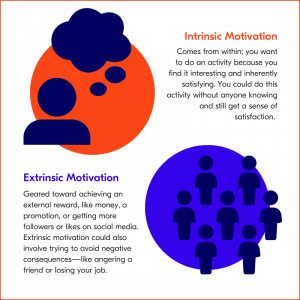In Search of Purpose
This series takes an innovative, modern, and tailored approach to financial planning and is designed to help you craft a unique strategy that focuses not only on wealth but also on discovering a deep and sustaining sense of fulfillment. Drawing on principles from Maslow’s hierarchy of needs, we will cover issues like finding a purpose, embracing the unknown, and how to develop empathy and acceptance as we consider the question “what’s the point of it all?” To read other pieces from the series, click here.
This installment discusses the often confusing topic of “purpose.” You don’t have to look too far these days to find someone discussing the importance of finding your purpose or, as it is sometimes called, “your why.” But identifying your life’s one singular, overarching, and unchanging purpose can feel overwhelming and even stressful.
That’s why we prefer to talk with our clients about living a “purpose-driven” or “purposeful” life. This wording emphasizes what matters most: that your sense of meaning guides the direction of your life. Your goal is not to find just one purpose to structure your life around. Instead, it’s to approach life in such a way that your deeper values shape your decisions.
Discovering Your Motivation

One strategy for determining your deeper values is to consider the difference between intrinsic and extrinsic motivation.
Intrinsic motivation comes from within; you want to do an activity because you find it interesting and inherently satisfying. Maybe you get a sense of personal satisfaction from doing it, like hiking a challenging mountain, or perhaps it’s simply fun, like dancing around your living room or riding a roller coaster. Regardless, you could do this activity without anyone knowing and still get a sense of satisfaction.
Extrinsic motivation, on the other hand, is geared toward achieving an external reward, like money, a promotion, or getting more followers or likes on social media. Extrinsic motivation could also involve trying to avoid negative consequences—like angering a friend or losing your job.
Over the past four decades, a significant body of research has demonstrated that intrinsic motivation leads to improved learning, job performance, creativity, and happiness. So, when trying to understand your sense of purpose, focus on activities that you are intrinsically motivated to do. Some questions to get you started:
- What activities bring you joy?
- What gives you a sense of personal fulfillment, like you’ve truly accomplished something, even if it seems small to others?
- What work would you do if you didn’t need to worry about money?
- When you were a child and were asked what you want to be when you grow up, what was your answer? Why?
- What specific elements of your hobbies do you most enjoy–a physical challenge, learning new practical skills, creating something out of nothing?
- What causes or charities most interest you? What issues do you find yourself reading, thinking, or learning about in your spare time?
Structure your life as much as you can around activities that you are intrinsically motivated to do, rather than those activities that seem important and valuable to other people. Similarly, don’t focus on what you think you “should” find meaningful or important.
Your Purpose, Your Plan
Still overwhelmed? We offer our clients a set of tools and resources that help them explore what they find meaningful—enabling them to examine a range of important areas of their lives, including creativity, spirituality, and giving back to the community. Examining different areas of your life separately can help you more easily generate memories, experiences, and activities that you have found rewarding in the past. While some clients, for example, learn that spirituality is an area they naturally gravitate toward, others realize that they most enjoy creative endeavors.
Our advisors use these inputs and discoveries to design a tailored, comprehensive life plan. This plan provides a vision for the years ahead by integrating tried-and-true cornerstones of financial planning with your deeper values and goals—your purpose.
This road map can reduce decision fatigue and help you quickly prioritize and clarify your spending. It also empowers you to live in the present, rather than waiting until some distant goal, like retirement, to begin living a meaningful life.
“Once you discover what’s truly and uniquely significant for you, you can focus your energy and your resources on building a more fulfilling life for yourself and your loved ones.”
Knowing what’s intrinsically rewarding is integral to Maslow’s notion of a self-actualized person. As we wrote in the first piece in this series, a self-actualized person is someone who makes every decision according to their sense of purpose. Although self-actualization is not a perfectly linear process, it is hard to fulfill your purpose if you don’t know what you find truly meaningful. Once you discover what’s truly and uniquely significant for you, you can focus your energy and your resources on building a more fulfilling life for yourself and your loved ones.
Read the previous installment of “What’s the Point?” here.
Truepoint Wealth Counsel is a fee-only Registered Investment Adviser (RIA). Registration as an adviser does not connote a specific level of skill or training. More detail, including forms ADV Part 2A & Form CRS filed with the SEC, can be found at TruepointWealth.com. Neither the information, nor any opinion expressed, is to be construed as personalized investment, tax or legal advice. The accuracy and completeness of information presented from third-party sources cannot be guaranteed.